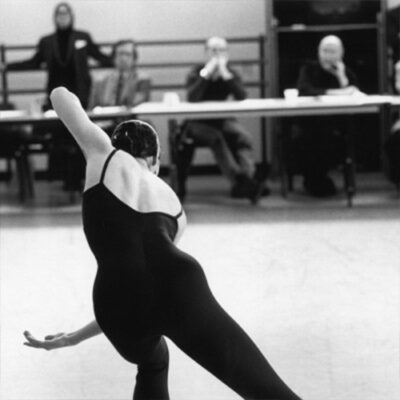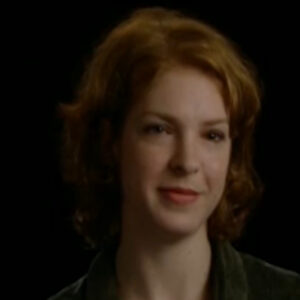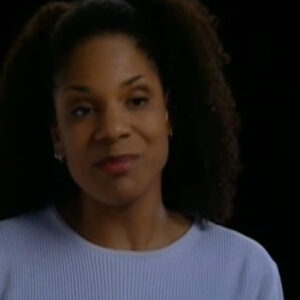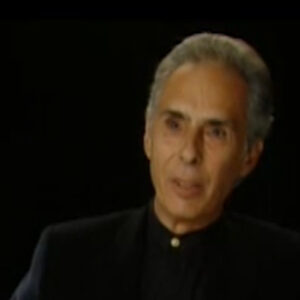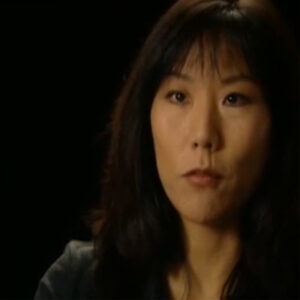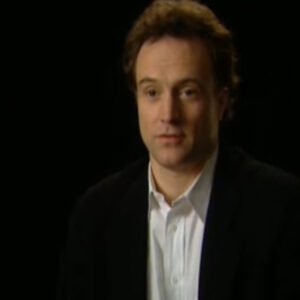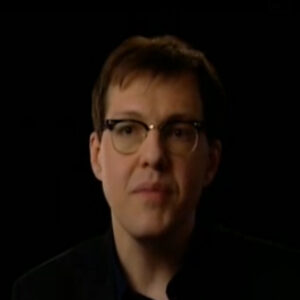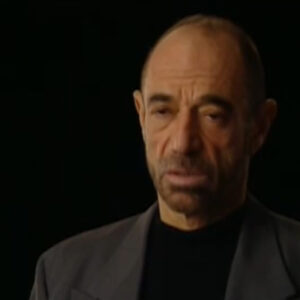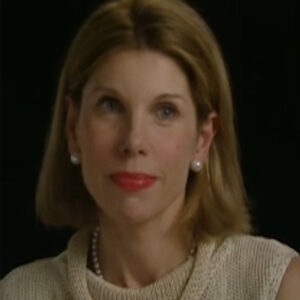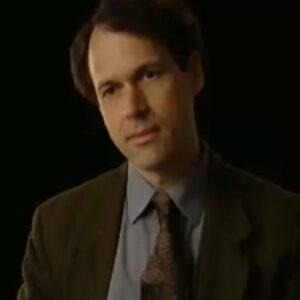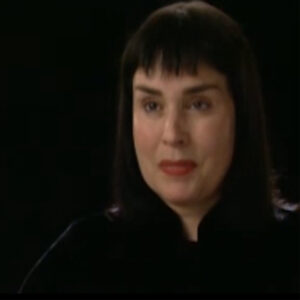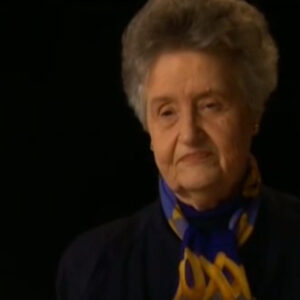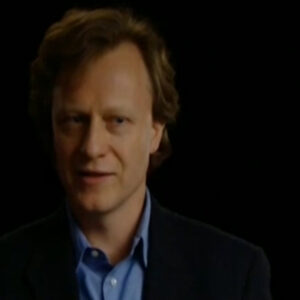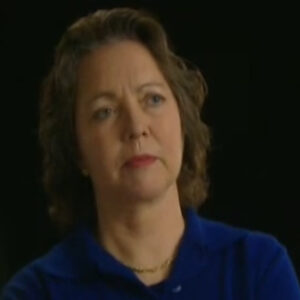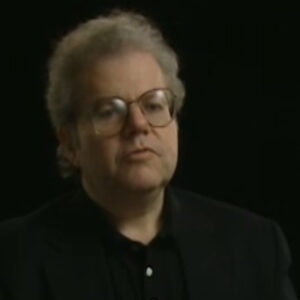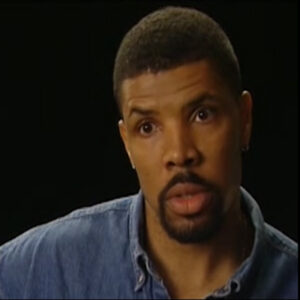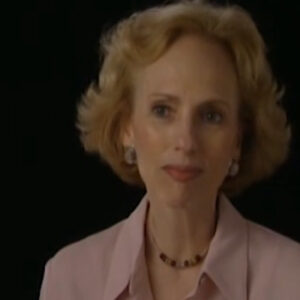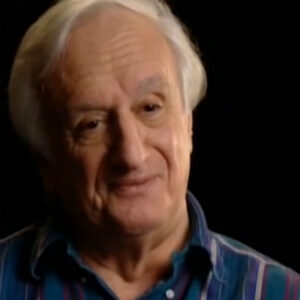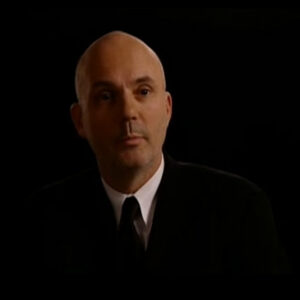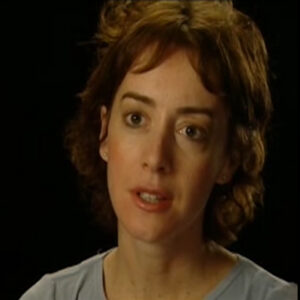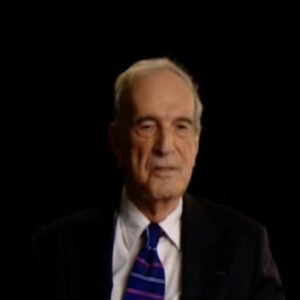Speaker Well, I will not tell you much about mine, because my mom is a totally different field star, so scratch mine because mine can be terrific for actors. Only when the actors are accomplished, when they are not accomplished can be even dangerous for them because it can harm them in several ways, especially with muscular and muscular attention, because that’s what the mind does. And movement also is a kind of a bogus title for that, because you move and everybody in the streets move and we all move.
Speaker So movement is is not really the right term for for what we do at Juilliard and what I do, it’s more acting through the through physical expression. If you want. Because there is no just movement per say when you move. It has to be justified. It has to be meaningful. It’s not movement for its own sake. Like the actor is justified in whatever action they take, in whatever intention they are and whatever situation they are in. They have to motivated. They have to to base it on some kind of a reality within the situation. That’s what movement does in some way.
Speaker So it’s really either I think through movement or or or or physical acting, if you want, you know, that’s what it is. What do you want to know more specifically about it?
Speaker What? Why did it become a core element of the Juilliard program? Why? How did that come about?
Speaker Well, actually took time for it to come about because at the beginning, the speech was the core element that no one can could budget the time. And because, you know, they wanted there was some kind of philosophical approach were where this school wanted to improve on the American speech and American on the actors American speech. That is when the Actors Studio, you know, there was a lot of what was known as mumbling. It’s not being very clear. And it was wonderful for the movies, but it wasn’t very good for the stage. So there was a lot a lot of attention that was put into that. And during the time, in a way, the physicality was neglected for quite a few years at the beginning. And suddenly people realized that the Juilliard people spoke beautifully. But in some ways, we’re not that connected to their body. And that’s when we came back into IN2, focusing a little bit more on the physicality.
Speaker Well, let’s go back a little bit to these. You know, these early years.
Speaker I mean, how did how did you even come to be involved with the program? Well, what was what was percolating at that time and where did you.
Speaker Oh, I just didn’t know anything about the program. I had a mind company at the time. And I think if I’m not wrong, actually, it’s an interesting story because I did perform with my company at the Northrop Auditorium in Minnesota. And and we we had some wonderful reviews. And I think the story goes like that. I’m not sure if I believe it completely, but I had a friend whose name was Millard Lampel. I haven’t seen him for many years. He was a screen writer. He wrote actually The Wall, the play that was produced on Broadway. And his daughter was a student of mine. And he was a very good friend with John Houseman and the way he told it to me. He once went into John Houseman’s office and saw a review about me and my work from this performance at the Northrup auditorium. And he said, I know this man. What’s this review doing here? I said, well, I think the review is interesting and that it was meant to ask him whether he would come and talk to me a little bit about his work. And Miller itself, by all means, take this man because he’s wonderful. And that’s how John called me and asked me to join them at somewhere in Connecticut for every treat to show some of my work with the guinea pig students that we had there at the time and stuff.
Speaker Because I would remind you just so that, yes, I can have it in my place, that you went to a retreat with Wickham, right?
Speaker That’s right. Two girls. That’s right.
Speaker So tell me a little bit using that name, how that came about. What was that exactly? What was that idea?
Speaker Well, the idea was that they wanted Michelle me. Danny was the person that really had to give the direction to the school artistically. John Houseman was basically the producer who was behind it. And John Houseman, who was a man with terrific insight and taste, understood that Michelle Michelle had the secret. And so what Michelle wanted to do at the time is to have the people who would teach come and show what they do. And according to each discipline, each each one in his own discipline or her own discipline would take from him some indications or rather what he called at the time, the papers, the very famous papers he gave each of us a bunch that related to our own discipline and in a way, guiding us through that. Of what he wanted to see done, at least in the first or the first few years of this school.
Speaker So I thought it was a very, very interesting place to be at the time.
Speaker It was like an artistic camp, you know, where you had several different forces, artistic forces joining and clashing and and each one just openly talking of their own opinion, what theater should be.
Speaker And it was very stimulating.
Speaker And when they decided that I’ll be part of the problem program, I was elated.
Speaker Now, who is who is at this retreat? You remember the characters? The characters?
Speaker Yeah. Maybe. I mean, there was Steven Aaron. There was Bill Woodman. There was Michael Kahn, of course. Michel. John Houseman. Who was there? Marion. Marion. I know Rene was there, Renel billion while Anna Sokolov was not yet there. And these are the people I remember, really.
Speaker And what was the you say in the way there were clashes? What were the clashes?
Speaker Well, I can talk only about what I felt. Yes. Yes, definitely.
Speaker I mean, I came from the world of mine and I presented my work with some of the students.
Speaker And of course, John had some things to say about it, too, which in the long run, he was right, you know, where there was work with too much physical tension.
Speaker And because in mime, we created a world. Out of nothing. And in theater, you have everything in order to create a world out of nothing. You have to create certain physical tensions to bring the focus to these specific things. And in acting, you didn’t have to have that in mind. There are some kind of rules that if if you are afraid, you retreat. If you are bold, you go forward, et cetera. And in acting, you can be afraid and go forward as well. So there was some there were some differences in the philosophy of the approach to acting in that way, which you had to adapt to. As years went.
Speaker Along, just to sort of clarify, I mean, to describe in a way, and it’s in a way, it’s it’s in the early pages of your own book, which I read it. And Kevin Kline talked about it briefly, saying to me, you know, that he could hark back to movement, for example, in the ice storm.
Speaker It was really shot in the summer. The what was supposed to be ice was really jelly. He was able to to move on the ice. I mean, to the untrained eye, how is what’s happening in movement class translating to peoples to what you’re seeing on the stage or on the screen? What what what are you really working?
Speaker Well, it’s a little bit deceiving because the moment you say movement, the moment you say physical acting, you think that people should move, then. Do you know that? It’s basically basically, first of all, helping you to develop your physical expression to the point that you can meet the demand of any part that you are going to take on. That’s basically it. And secondly is to be so confident physically that you don’t really have to move all the time because that not every character demands this kind of for a lot of physical expression, but but being connected to the body at all times.
Speaker This is something that.
Speaker Is very important in the work, which means that you are connected physically, even when you don’t move at all in your stillness. The body should be part of the thought of the emotion of the idea. And when Kevin said that he was getting back into into whatever he experienced in class, we do do that, actually. I mean, we do. We have a simple floor and we do experience, you know, being blown by the wind and the sliding on ice. And and being in an earthquake and all of these things.
Speaker And what are the core I mean, I’d come in the same class. Yes. The core exercises. But what are the corrections? I mean, every single time you say to somebody, what have you seen in class? They’ll all go like this. I mean, it’s like the first thing they do, they say, oh, that we took movement class, like reach for the sky. I mean, what are what are these core? What are these core exercises that you’ve worked?
Speaker I mean, how when when they reach it’s very, very interesting that they they relate to that because basically basically we are all bounded. We are all bounded by gravity. We have this constant pull that drags us down and our struggle like a tree.
Speaker Was Branch’s.
Speaker Want to reach up to the sky? But the roots keep pulling downwards. We all we all have this need as artists to soar, to have our spirits soaring and to have our body follow it. But we are rooted and in a sense, that’s what I do. I physicalize that I fickler physicalize the need to soar. They need to rise. They need to be uplifted. And yet the drama of it is that we are constantly, constantly pulled down. So in a way, philosophically, philosophically, this is one of the aspects on which we work to find the drama.
Speaker In the physicality itself.
Speaker To find the drama of the person, the drama starts with the loss of balance, whether it is emotional, whether it is mental or physical. If a person is confident mentally, emotionally and physically, there is no drama there. There is strength. Maybe.
Speaker There is confidence. There is ease, but there is no drama.
Speaker The drama starts. It’s when I start to lose the balance. You tell me something. I don’t know how to answer it.
Speaker I become a little bit cheeky. That’s when the drama starts.
Speaker I’m walking and suddenly I’m about to fall. When I fell. The drama is resolved. But between standing up and falling down. That’s where the drama exists. What’s going to happen when I’m thinking what’s going to happen?
Speaker I’m in the midst of drama when it happens. The drama is over.
Speaker Before it happens, there is anticipation, but doesn’t have to be that dramatic.
Speaker It’s the planning in between.
Speaker It’s in between that the drama exists, and that’s in a way, what I tried to find in Rome and in the physicality and the physical expression that the arc of the program, of the arc of the training at Juilliard.
Speaker Now, how does your work shape first year to third year?
Speaker Well, I don’t teach the first year, but the first year is mainly mainly to get read, to get rid of some of their physical problems that they came with, that my temper, their their creative process and to put them into good shape. That’s basically what the first year is, the second year they start to work with the body more as actors. That is, as I said before, to start and justify. If they move in, I. It has to have the meaning. It has to have a reason. They don’t move the eye just in order to move it or to move the head or to move an arm. If we do a gesture, the gesture has to mean something. And that’s what they start to understand in the second year.
Speaker And then in the third year, you carefully watching this work come out, plays in what it has now in the third year we go on in.
Speaker We go on in the second year with the event that we develop a series of exercises and then we improvise on these exercises, trying to find how we can apply them to our work in the third year.
Speaker We have three type of improvisations, which means they are not based on any exercise. It’s just an acting improvisation and we try to find the physical life in it. And yes, we do. Look, if if if physically the actor is really meeting what the part is asking for, what’s asked for in the in the part within any given situation. We do. Look, if if the actor is connected with the body, if the if all the Restall resources become one integral part of the actors expression, you know that I was going to audition.
Speaker Yes. I know a little bit about from the faculty perspective. What what do you what what how that process works and what you’re looking for and what you see here?
Speaker Well, you know, it’s very difficult, very, very difficult because you have to have it can’t be just buy to decide what we are looking for in in a talent.
Speaker It can to be designed by really by a committee in some way. So each of us, I’m sure we all have our tastes, tastes. We we all have our understandings, our insides. If you want and I think each of us responds to the people that we see in in in different ways.
Speaker And it is then if we like the person we think the person has. What the case in order to become an actor. Because the first thing you ask yourself is to audition. We know the field. We know how hard it is for young people when they graduate to find the right. In artistic form, you know.
Speaker And so you have to ask yourself whether the people that we that are going to give four years of their lives. We’ll have a chance. Of becoming artists that would get some kind of gratification by doing what they do so well.
Speaker Yeah, I think each of us, each of each of a member of the faculty, when we audition people, we have a lot of things going through our minds. And what we respond to basically is yes. I think it’s worth for this person to give it a try to spend four years here. And because this person might be rewarded and fulfilled by living in the field that they chose to live in.
Speaker And as part of that process and also in you know, of course, as you can imagine, everybody has talked about the drastic cuts. You’re watching their classmate. Yeah. Right. Yeah.
Speaker I mean, it’s part of I mean, talk a little bit from you know, I don’t really talk to other members of the drama yet to you’re the first one. But I mean, I’ve certainly heard about it from a student perspective. But from a faculty perspective, I wouldn’t presume a bit more thought goes into it.
Speaker I would imagine a lot of it goes into it, a lot of thought, a lot of going in.
Speaker I think I did because my question started it. Yeah. Talk about it. Referring to to the sort of cuts or whether people should stay or, you know, saying what?
Speaker Well, we’re talking.
Speaker So what is it that you want to know?
Speaker I guess I want to know when you say a lot of thought that goes into it.
Speaker I’m just saying, instead of saying goes into it goes into this process of whether people should stay or for years. Yeah.
Speaker It’s more than just thought. It’s it’s our own process of observation of the person in question throughout the years or the year and a half that they were working and whether there was the type of progress that might that might prove worthy for this person to go on. Or, you know, there are sometimes very talented people. You know, not every teacher is for every student and not every school is for every student. There are all kinds of temperaments. And and people respond to different people, to different teachers, certain differently, you know. So I can remember I mean, I know for a fact that there were people whom we thought very talented, but they needed different type of schooling.
Speaker Or to try a different type of schooling.
Speaker And we do encourage that and we help some people in that in that way, you know, guiding and guiding them in a in a direction where they had to go, you know, either to go to a different school or different teachers, because the talent sometimes it just does not connect.
Speaker You know, it’s a very, very demanding school in some ways. And there are people who have different type of spirit, you know, and that can take the rigor of this kind of school also. But this doesn’t mean that they are untalented.
Speaker How in what way with. I mean, it’s people say over and over again. This girl is so demanding. In what way do you perceive it to be demand?
Speaker I just think of being there at 9:00 in the morning till late at night, every day, five days a week, sometimes six days, rehearsing place demands from the different teachers to prepare certain things and physically to go through it from morning till night. That’s hard, that’s hard on. Well, we tried really in the past few years. I think that there is a great improvement in that way. We tried to give them a little bit more time to breathe. Time to think. So it’s hard and it’s four years. Four years. So. And the demands every day to be committed to every moment that you are in class. That’s not easy. There is no way for a student to come in into a class and just swing it.
Speaker I mean, I know in my class you can’t do that. You cannot just come in and be part of it without being fully committed to every moment of these of the hour and a half in which we were.
Speaker And I’m sure every other teacher demands the same thing. I mean, we do commit ourselves to the class as teachers and we ask the same thing from the students. So class after class and day after day makes it quite difficult and it takes a special person to be able to go through it. Special will and the special need.
Speaker Well, everyone sort of said, if you don’t love it, don’t do it. I mean, if you’re looking for something good, it’s a hard road to go.
Speaker I would say much more than that. If you really don’t think that there is in any way that you can make your life, you know, elsewhere, then you might try and do it.
Speaker But if there is any chance that you can do something else and still enjoy it, by all means, go there.
Speaker Because it’s that tough of a road.
Speaker It’s a tough road. And and it’s not just at the school. It’s also what took us after the school.
Speaker You know? It’s a tough.
Speaker Tough field to be in.
Speaker And there are very few who really are able to to work on a consistent in a consistent way and to enjoy what they are doing.
Speaker Tell me a little bit. Just to go back. Tell me about Michele Dust particle that’s floated about, you know, Syria and and especially about Michele, because you know what their philosophy was, what that was? Well, I was born in what? Why were they going to why were they told that this program must be developed under this philosophy?
Speaker Well, because I think also he was very successful in in London when he did it. And that’s how. Yeah. Yeah. I don’t know too much about it. I just know that he he created the young vic.
Speaker Actually, let me use his name when you’re Michelle Santini.
Speaker Did say you just use this.
Speaker They don’t hear you. You don’t hear my voice or my voice. Oh really. Oh oh oh oh.
Speaker So I just thought that because when you mention it, I don’t have to say you. Michelle Santoni create that they think the school, the young vic and the he was extremely successful. And I guess that’s why you, John Houseman, thought of bringing him in as a partner. The artistic partner. I can tell you too much about him because unfortunately, you know, immediately after the school has opened, he passed away. So we didn’t have too much of of of him around because he was also travelling to Canada and to France. But the few times that I saw him and talk to him, it was less about really little specific things and more about the way he inspired you through what he was, through the personality that he was, through his love for acting. That was just incredible. And I think that this inspiration had to do something with with with you connecting with him. I recall when when we were at this retreat, Michelle just saw a mask lying on the table and he put it on and he was incredible. He was funny. He was moving within two minutes. He will he was in such total transformation that it was amazing and he was not a man. And of course, his wife, Suria, you know, was screaming there he was. She was very afraid that he might get a heart attack. He was not a well man at the time, but he was just so magnificent. And you saw so much love for what it did that it was contagious. I think it had a lot to do with that, not less than the specifics of the techniques that you want. It does.
Speaker Well, you know, he is this imposing figure. I mean, and he wanted to be I you are talking about John Houseman.
Speaker Yeah. Well, tell me what. Yeah. Oh, he was a very imposing. I think John has been caught. Yeah.
Speaker John Houseman was extra an extremely imposing personality. He had a history behind him when he came to Juilliard. You know, he was a big man in various ways. He was the head of the studio. He was the head of the Stratford the Shakespeare Festival. So he had the whole history and he came in already with a baggage. He was extremely, extremely knowledgeable.
Speaker He had the most admirable taste. In theater.
Speaker He knew a good thing when he saw it and he knew everything of the above. Which mean he knew his word. And that’s why sometimes it was a little bit difficult to deal with him because. He would listen. He would listen. But in his own way, to make you feel that he listens. And yet he would do what he wants to do. So it was it was a kind of a.. Well, if you want. It was it was his school. It was not a school that could nurture really in too much individuality. It was a school the way he wanted it to be.
Speaker And we all felt it, even if it was not told to, at least I felt it.
Speaker I shouldn’t talk for other people. And I did not like it very much because I had my own company. And that’s what I cared for. And. And I was a free spirit. And I was rebellious. I was young, almost like the students themselves. So I had a hard time with that.
Speaker Did you sense, like the student says, this, this incredible mission, he had, this obsession with Group one.
Speaker And what would become the acting company that really superseded his interest in the school? I mean, a lot of the later students say group four, five, six. Right. We’ll say, well, it was really all about him finding that initial acting happening. And then we were sort of, you know.
Speaker Yes. Yes.
Speaker Did you have an interest in the acting company or were you in a larger way? What was that mission that he had? First, tell me why you perceived the mission to be.
Speaker Well, I don’t know. I mean, I know people talk about this mission. His mission, John’s mission with with the acting company. But. John was a very creative person.
Speaker Being in the theater, he had to create with people and that he was that was his forte. He could create with other people.
Speaker When John directed, he needed someone else to work with him on directing because it was very difficult for him to work alone, although he was he had tremendous ability and knowledge and everything. He needed someone else to do the dirty work. And then he would come with his tremendous sense of taste and fix things.
Speaker But so and I think it has something to do with with the what he wanted. To prove.
Speaker Through that school that actually he could take a group of people that graduated from this school and turn it to the type of theater that he believed should.
Speaker Should surface because this kind of theater did not exist at the time, so the mission? Yeah, it was a mission. But for me, it was also thinking about him. It was also kind of his toy. It’s something that he had to play with, manipulate to his own. Need and creative reward, which means the type of sharing when you create this kind of a theater, the type of sharing with other. Artistic forces. I don’t think existed.
Speaker I know that, you know, in that sort of vein, I mean, I’ve just was sort of thinking as you were talking, I was thinking, you know, in a way, how does this all fit into Juilliard? I mean, Juilliard abuses since 1985 where, you know, in Wickham Rise or anywhere or in any time. Did you feel this feeling of what a responsibility was to the legacy of this Juilliard? Or was it really John show and. Oh, good. We got some studios to work. Or with.
Speaker Yes. Yes. I mean, our film is. It is. Yes. Right. At Juilliard, right? Yes. How did that get?
Speaker Well, I think it was we I did not feel the responsibility of all the weight rather than being part of this tremendous institution. I did not feel that. And the working very, very closely with Renel burgeois, because we talked together the improvisation class in the first year. I know for a fact that he did not feel this, that he felt just like me because he was still interested in acting and he wasn’t sure that he wanted even to become a teacher. I think it was just a time of trial. I don’t think any of us.
Speaker Uh.
Speaker We were not sure of where we were going.
Speaker We were not sure of how these first years where these first year years would lead us to.
Speaker So it was more of a being in a situation trying to do well within the situation without too much expectation. I think the only one that had some kind of expectation or maybe some kind of of of a notion of where he wanted to go with it.
Speaker It’s John. John Housemen.
Speaker For us, we had other interests. You know, we were young and we were ambitious and we wanted to become directors and we wanted to become actors. And we had our own ambitions. The school was just it was just something interesting, exciting to look into, maybe to learn something from it. But it was not necessarily my ambition at the time.
Speaker It became over the years. But at the time it wasn’t.
Speaker And talk about it becoming over the years, I mean, when did you get this this sort of sense of of Juilliard as this? As this umbrella over over your own.
Speaker Well, Juilliard.
Speaker Because I taught in several other schools. And it became Juilliard because I think that the type of discipline that we try to impart at Juilliard was.
Speaker Something that I really related to. The demands. The artistic demands.
Speaker So it became Juilliard rather than any other school rather than Yale or Circle in the Square or the Stella Adler studio where I taught at the time as well. Because I found that within this conservatory I could explore.
Speaker Things that I couldn’t explore elsewhere. It gave me enough time to do that and it gave me the talent.
Speaker With whom to work and explore my own personal artistic needs. And I mean, I was a director, as you know. I mean, I am a director. But the time I was. A director that directed successfully some things and I had a company, but as time went by, I felt so rewarded by my work at Juilliard that other things started to become secondary. Whatever I could get up with, whatever idea you had in the morning, I could go to that place and within these four walls, explore it and experiment. And it gave me tremendous, tremendous.
Speaker Sense of of being creative. And it responded to a lot of needs. I didn’t have to struggle for need these needs. I didn’t have to look for the right play in the right circumstance for me to go in direct. I could do it right there with more with wonderful talents. So and year after year, the more I talked, the more I felt satisfied in that we.
Speaker And I still I go to these classes with anticipation after all these years. Because I am never sure. I know basically what I’m going to teach in the class. But I’m never sure. I mean, after 30 some years yesterday. I developed something that I’ve never done before. And I went home tremendously excited.
Speaker I used in the next an exercise that I’ve been doing for many, many years in a different way and connected it, connected it to something else that I used to do before, like fifteen years ago. And suddenly it made sense to me and I felt in heaven. I felt extremely, extremely excited. And that’s why I’m looking forward to teach.
Speaker Really can’t for a. Can you give Ned a bottle of water?
Speaker And I didn’t survive in other places because I didn’t have that.
Speaker Where do you say that? Where did that come from? Does that come from the nature of the Juilliard?
Speaker Well, I think that. I came back. I left Juilliard for three years because of of as I said, I had been a little bit unhappy about what was going on, that, you know, with the. Hierarchy. And its relationship to the students. And there were several things that occurred and I decided to leave. And, uh, luckily at the time I was invited to go and teach at Yale and the. And it wasn’t very easy for me because I had my company here in New York based in New York. I had to travel in the morning, come back at night, rehearse with the company and go back there again in the morning. So it was not an easy life in that way. And when I was invited back to Juilliard. Bye bye. Alan Schneider. I was only too happy to get back there.
Speaker Karl could be a little bit because it’s because there’s sort of a. A drop in the in the understanding. How did the leadership of the drama division go? And what was different about the different 10 years? I mean, you’ve been there for all of them now. Yeah. I mean, were they. In what years today.
Speaker This this. I can’t really remember exactly the years, but.
Speaker But there was John Houseman and Alan Schneider was in constant touch with John at the time. I used to see Alan coming in and going into John’s office and office quite often. And I guess that he recommended Alan for the job when he left. And. And Alan came in and had his own difficulties there because I guess he felt he wanted to be a little bit more secure and have a long contract. Which men. Absolutely objected to at the time. So he was not too happy. And I think he he he he was there like for three years or so and then he left. I think I’m not sure of the number of the years. And he left. And Michael Langham came. He was there with us for about eleven years. And it was a very wonderful time. You know, very. Wonderful.
Speaker Luckily, all the teachers were. The kind of teachers that are very, very committed to what they were doing. So I think this whole tenure of Mr. Langham was one where the teachers became really the crux of the whole establishment and artistic vision, because he allowed that because he he did not have much experience in this type of education. So he allowed us in a way to test to see that the artistic vision would go on and develop. So that was very good. And of course. When Michael Kahn came, it just took an incredible. He came in within a law. He came in with wonderful ideas, with tremendous energy and knowledge, because if you are acting. And the artistic education is really. Something that he has tremendous insight into.
Speaker So he’s been he’s been leading.
Speaker And yet giving enough the freedom, enough of a freedom for all of us to be able to grow.
Speaker As students, as the teachers, you know, we talk so much about the camaraderie of the students, I mean, to them, you know, whenever you’re a student, it’s the US and the them. Yes. But I’m always sort of, you know, touched by, you know, this is therefore your experience. But this is your life as well. I mean, what is it? What is it this this this sort of life of the teaching? This is the faculty at Juilliard in Minnesota. Is that a very I mean, obviously, it it’s it’s it’s your life. I mean, it’s here.
Speaker I mean, it’s it’s a big part of it definitely is my life. And for the number of years that the same students are at school, which means the four years.
Speaker I do feel I do feel very much. You know, I worked a lot with Stella Adler and she used to say, you are lucky in the theater if you can find parents, artistic parents in the theater. And she had, of course, artistic parents. In reality, you know, not just in the theater and in life.
Speaker And and I do feel I do feel that I have you know, we.
Speaker A responsibility of an artistic parent. That is to try to guide the young talent in a way that this young talent will evolve, will grow and will have some kind of back to take with him when he leaves. And at the same time, as is the responsibility of every parent, it’s to make sure that the attachment is not a harmful one, which means at the same time that you care for them, you allow them to have enough independence. To be able to go out there without having to feel this, that a separation can be damaging to them.
Speaker So it’s a very delicate balance. On one hand, you want them to feel that we do care for them because we do care for them. And on the other hand, you have to lead them into independence.
Speaker So it’s a fine line to walk through, and I’m sure I know for a fact I had the discussion about a month ago with the students and they know for a fact and they heard it that we don’t care about them and we don’t give them what they want, et cetera, et cetera. This is very calculated, I’m sure, by other teachers, too. By me. Definitely. It’s a very calculated approach. I do care for them. I do care for them a lot. But there are things that I would like them to feel that they are responsible for, and that’s their lives. And their artistic likes.
Speaker So they’ve got a.
Speaker That’s right. I don’t care if they don’t remember my name when they leave Juilliard. I really don’t. But what I care about that when they go out there and have to work, that they know what they are doing, that they can take a script, know how to break the spirit, the script down, know how to approach the part, how to find it, how to find the clues for it, and how to be able to live it emotionally, mentally and physically. That I care about.
Speaker Do you feel when you’re when you’re out of the world, when you. What kind of response do you get from say hi to Julia? What’s the Juilliard or the myth versus the. I mean, how did how did how is that perceived? Do you think the upside is?
Speaker It’s a huge if I say to somebody like you doing making a documentary about Juilliard. It’s like, oh, my God, you’re studying a cult. Yeah, he’s had that response. It’s interesting. And I’m wondering, what is this, this or this? This myth of Juilliard, where lies the reality?
Speaker Well, it’s easy to know where the reality lies. The reality lies in the hard work and total commitment. That’s the reality of Julia. What makes the myth of it? I think just because the people that graduate from Juilliard really are good professionals are often on their way of becoming good professionals. So, yeah, the response when I say that I teach at Juilliard is always interesting. It’s respectful. And and it depends also who do I talk to, to whom I talk? You know, it’s it’s, uh, if it’s from someone who came from a different place, you know, the the. It’s it’s interesting, even for the Juilliard people who left. I think it’s interesting more so than for me as a teacher. You know, the response to the students themselves. I mean, I had I had this I had this student who went and became quite successful in the movies. And I met him about 15 years ago in Los Angeles when I was directing the show at Pasadena. And we had lunch together, and he was really.
Speaker Very distraught. About Juilliard.
Speaker He said it took him like three, four years to get rid of what he learned, the Juilliard.
Speaker I met the same person. Last year.
Speaker And he said, you know what, it’s all really.
Speaker A process Juilliard is only the beginning of it. School is only the beginning of it.
Speaker And then you go out and you find out certain things about yourself and certain things that you can connect or you can’t connect to, and you blame it on certain things. And suddenly you realize after a while that actually what you are doing is that you are applying what you have learned.
Speaker Fifteen years ago without even knowing it. So it’s all a process. There are no clear cut answers to anything in that way. I remember meeting Kevin Kline and I think it was after.
Speaker He did the Western film Silverado, and he told me, Moni, I don’t know what to do because all they tell me on the set is stop acting. Of course, I didn’t have the answer for him, because I am I’m not from the movie world, I don’t know much about it, but I told him this is something you can’t do. You have to do what you are most comfortable in doing in the way you really believe that you can express yourself.
Speaker And I think he found his niche in some ways, but it takes some kind of adapting to this new medium. And that’s, I think, what confuses also people. We do teach at school for the theater. And for the classical theater.
Speaker So when you go to the movies, there is some kind of adapting that you have to do. And that’s where the reaction is. My God. What did they have to learn? All the speech. Now I talk and people I say that I am like talking as if I am on stage. I cannot be natural. It’s not organic. But it takes some time. And then everything that you’ve learned comes just to the rescue.
Speaker In some ways. And makes you a better actor.
Speaker So we’ve gotten a lot of that good, too. She loves this word, but we’ve got go.
Speaker You want to one. You’ve got to additions. Some people are like.
Speaker I mean, do you think that I mean, do you think that that’s a real problem or perceived problem?
Speaker I think it’s more of a problem for the student. Sometimes it is definitely a problem for the student. I mean, I auditioned Juilliard students for not long ago for a musical that I intended to.
Speaker And there was nothing of Julia Dean, the addition of this woman that came in.
Speaker She became an.
Speaker Someone who just understood or thought that she understood what it is, how it is to audition for a musical. From all the examples that she had seen heard and being with people who auditioned for musicals. So she had nothing left of Juilliard. And she was very disappointing. Because there was nothing basic going on there.
Speaker It’s desperation.
Speaker It’s desperation because young people get confused. They are not sure what is it that they should do. It takes time. It takes perseverance. And people who have that and have the patience and have the will and have the talent, of course, find themselves and use whatever they have learned.
Speaker Can you talk a little bit about that? The 30 year project that you’ve seen this this year, I mean, on the level I can remind you, you have to remind me.
Speaker Well, the order of the third year plays this year with the Mahabharata. All right, then. The movie airplanes. Right. Play right. Plays with, right. Yeah. So let’s talk about the because, you know, in terms of, you know, this is the first year that, you know, they really are performing on me, right?
Speaker Yeah. I thought I thought that their work their work in the Mahabharata was absolutely splendid because I thought that they found a way of telling the story in a very, very, very engagingly.
Speaker And the.
Speaker They were true to their characters. And we had a little chat after the production. And I said, you’ve worked on it for seven weeks and for seven weeks, it was absolutely superb. What you did. But if I continue to rehearse with you like three more weeks on it, I would expect something different from a physical point of view because I felt it was a wonderful telling of the story. And of course, it has to do a lot with the vision of the director who tells and tells them what to do. But. But as a teacher, I have to tell them what I am satisfied with and or or where where is it that I think they could still go and improve and do it better? So it’s a responsibility that I have to take on myself as a teacher.
Speaker And yes, I thought the Moliere was absolutely stupendous physically. And funny and daring and risky and and everything that an actor should do. I felt that they really went to places that were not that were not familiar territory for them. And and so that was very, very satisfying in that way. And we I am not looking for really the success of the production in that way. I’m just looking whether they dare to explore in places where they are, where they have not explored before and grow and improve through that. And I thought that definitely they did it in this production.
Speaker And do you find that you deal the same strange to. OK. How would you and then keep her on psychopaths? So I. Yeah. We should stop for a minute. We’re running late. OK. You are running you into the ground.
Speaker But I want to ask one other question. Did you just know. Oh my. My question is, you know, I think the big journey that we’re seeing in following the third year students and Jeff, is this self flagellation self-loathing. Tear down that tear them down to the real bone.
Speaker I mean, where is all this pain coming from? I mean, what if, you know, what is your as a faculty member? Your sense of deja struggles itself with casting acknowledgement. I mean, how do you perceive it?
Speaker Well, I think I just I really believe in what Stella said, Stella Adler. She said that theatre was used to be such a joy, such fun until modern theatre came about. That’s where pain and struggle started. And theater in itself is a struggle. And there is joy in this struggle, but they just don’t know how to derive the joy from it yet.
Speaker So, yeah, it is difficult because also don’t forget that it’s a very, very strange thing to come in in the morning to be tired.
Speaker Emotionally. Not prepared for what the demand is going to be in the class, and then you’ll have to suddenly transform yourself from the inside out. That’s tough on the emotions. That’s difficult. And day after day when you have to do that, you know. Yeah.
Speaker When when there are emotions that you don’t feel at them at the moment imposed upon you. Day after day, it’s not like being in the profession and working for a certain period of time rehearsing. Having enough time to deal with the situation, to get into the part, to try and understand the part working on one part at the time, it makes it a little bit easier. But when you are in school and you come into my class, you do one type of improvisation that imposes on you some kind of an emotional commitment that you are not prepared for it. Then you go to another class and you have to switch that to a different type of emotion, whether it is in speech because you are working on a poem or a scene that you have to be committed emotionally to it as well. And then you go to seem class. So that makes it hard to switch, to become different people in in such a short period of time. That’s pretty intense. And that’s where the hard aspect of being a student. And for years. Day after day, doing that becomes hard. Of course, the more you do it, the more you find a way to ease yourself into it.
Speaker But they come in very young. They come in very inexperienced. They come in not knowing what to expect, what hits them. They don’t even know what it’s them there until the third year maybe. So that makes it. Truly a learning experience.
Speaker It truly learning experience and you find you’ve got you’re already dealing with a bunch of testy, testy want to be actors. So it’s like, you know, this kind of self flagellation. Do you try to break it? Try to stop it?
Speaker Well, we try to, I think, to give them a little bit of confidence in what they do. So it minimizes it a little bit because when you rely on certain techniques that actually help you find the clues into the part. You have to do it gives you some sense of more confidence. And that’s what you have to do. You can’t break that insecurity. You can’t manipulate it. You have to give them tools to work with it and to gain confidence.

